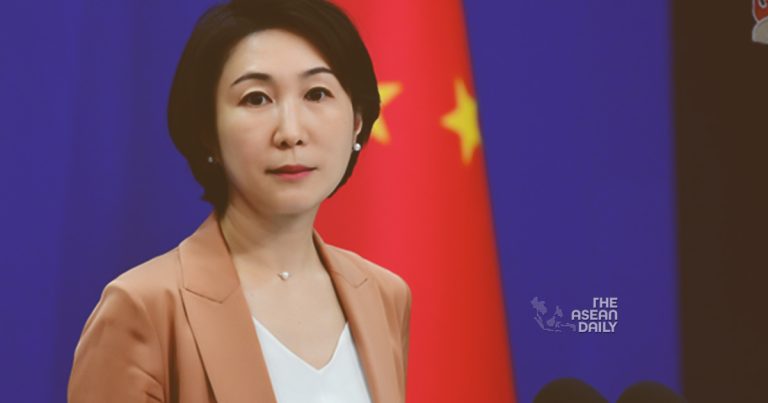13-1-2024 (BEIJING) As Taiwan eagerly awaits the results of its presidential election, China’s Foreign Ministry spokesperson, Mao Ning, has asserted that the outcome will not alter the fundamental fact that Taiwan is an integral part of China.
One China Principle Reiterated In a routine press briefing held on January 12, a day prior to the election, Mao Ning responded to recent comments made by an anonymous White House official in the United States. The official was quoted as affirming the U.S. commitment to the One China policy, emphasizing support for cross-strait dialogue over Taiwanese independence.
The unnamed official further conveyed that the U.S. maintains neutrality on the eventual resolution of cross-strait differences, as long as they are peacefully settled. Mao Ning underscored the importance of the One China principle, labeling it as a widely recognized international consensus and a cornerstone of the China-U.S. relationship.
Taiwan Independence Deemed a Threat Characterizing Taiwan independence as the “biggest threat” to cross-strait peace and stability, Mao Ning asserted that such aspirations were destined to fail. Reiterating the commitment of U.S. leaders to the One China policy and their disapproval of Taiwanese independence, Mao expressed hope that the U.S. would uphold these commitments.
China urged the U.S. to handle Taiwan-related matters with prudence, cease official interactions with Taiwan, and refrain from any interference in the elections of the Taiwan region. Mao emphasized that opposing ‘Taiwan independence’ and supporting China’s peaceful reunification were crucial for maintaining peace and stability in the Taiwan Strait.
Taiwan Elections as China’s Internal Affairs Mao restated that regardless of the election results, Taiwan’s elections were considered “China’s internal affairs,” emphasizing that the basic fact remains: Taiwan is an integral part of China, and there exists only one China globally.
Accusations of Interference Accusations of Chinese interference in Taiwan’s elections have been mounting. Taiwan’s Foreign Minister, Joseph Wu, alleged that China has engaged in interference efforts during every election since Taiwan embraced democracy. Democratic Progressive Party candidate, William Lai, went further, accusing China of employing unprecedented levels of interference, including political, military, and economic pressure, cognitive warfare, disinformation, threats, and incentives.
Reports suggested that China pressured Taiwanese rock band Mayday, popular in China, to publicly support the One China policy. Additionally, on January 10, a Chinese satellite launch coincided with flying over southern Taiwan, prompting an air raid alert. While the rocket launch stirred pre-election tension, the Taiwanese president’s office clarified that they believed it had no political motive. The defense ministry apologized for an erroneous translation, clarifying that the term “missile” was used inaccurately.




